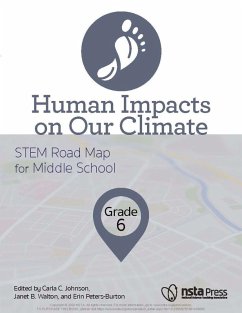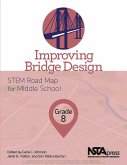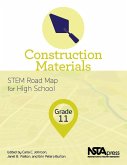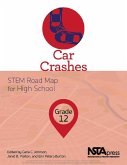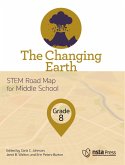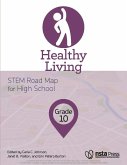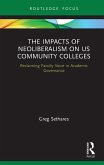What if you could challenge your sixth graders to come up with a way to help tackle climate change in their own community? With this volume in the STEM Road Map Curriculum Series, you can!
Human Impacts on Our Climate outlines a journey that will steer your students toward authentic problem solving while grounding them in integrated STEM disciplines. Like the other volumes in the series, this book is designed to meet the growing need to infuse real-world learning into K-12 classrooms.
This interdisciplinary, three-lesson module uses project- and problem-based learning to help students investigate aspects of climate change that have been driven by the rise in global temperatures over the past century. Working in teams, students will use an engineering design process to identify a local environmental problem, develop a model to help monitor and minimize its impact, and create a presentation about their findings. To support this goal, students will do the following:
.Explore differences between weather and climate and explore temperature as an indicator of global warming.
.Examine the role that greenhouse gases play in global temperature warming.
.Explain the causes and effects of climate change and how humans have influenced it.
.Use mathematical modeling and numerical data to explore climate change's impact.
.Analyze and synthesize credible resources to form scientific arguments regarding climate change.
.Develop a deeper understanding of how climate change influences the economy, our society, and people everywhere.
The STEM Road Map Curriculum Series is anchored in the Next Generation Science Standards, the Common Core State Standards, and the Framework for 21st Century Learning. In-depth and flexible, Human Impacts on Our Climate can be used as a whole unit or in part to meet the needs of districts, schools, and teachers who are charting a course toward an integrated STEM approach.
Human Impacts on Our Climate outlines a journey that will steer your students toward authentic problem solving while grounding them in integrated STEM disciplines. Like the other volumes in the series, this book is designed to meet the growing need to infuse real-world learning into K-12 classrooms.
This interdisciplinary, three-lesson module uses project- and problem-based learning to help students investigate aspects of climate change that have been driven by the rise in global temperatures over the past century. Working in teams, students will use an engineering design process to identify a local environmental problem, develop a model to help monitor and minimize its impact, and create a presentation about their findings. To support this goal, students will do the following:
.Explore differences between weather and climate and explore temperature as an indicator of global warming.
.Examine the role that greenhouse gases play in global temperature warming.
.Explain the causes and effects of climate change and how humans have influenced it.
.Use mathematical modeling and numerical data to explore climate change's impact.
.Analyze and synthesize credible resources to form scientific arguments regarding climate change.
.Develop a deeper understanding of how climate change influences the economy, our society, and people everywhere.
The STEM Road Map Curriculum Series is anchored in the Next Generation Science Standards, the Common Core State Standards, and the Framework for 21st Century Learning. In-depth and flexible, Human Impacts on Our Climate can be used as a whole unit or in part to meet the needs of districts, schools, and teachers who are charting a course toward an integrated STEM approach.
Dieser Download kann aus rechtlichen Gründen nur mit Rechnungsadresse in A, D ausgeliefert werden.

